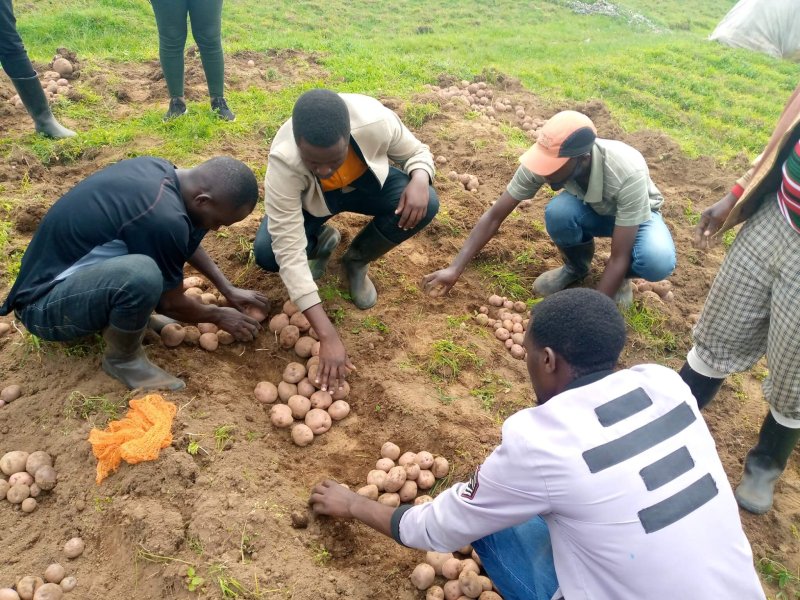Potato farmers have welcomed the government’s ongoing trials on the use of agricultural biotechnology in producing a new Irish potato variety resistant to the devastating late blight disease.
If successful, farmers can grow the new potato variety without necessarily using agrochemicals.
Late blight, a potentially devastating disease affecting potatoes and tomatoes, infecting leaves, stems, potato tubers and tomato fruits, spreads quickly in fields and can result in total crop failure if untreated.
According to the International potato Centre (CIP), in East Africa, the disease can destroy as much as 60-100 per cent of the crop.
Apollinaire Karegeya, [a farmer in Musanze District, Rwanda]:
One hectare requires three kilos of agrochemicals. Each kilo costs RWF 5,000 (about USD 4.85), and we spray twice a week.
The farmer uses RWF 30,000 (about USD 29) per hectare or RWF 450,000 (about USD 435) on his 15 hectares, every week.
Apollinaire Karegeya:
We hope the agricultural biotechnology that the government is talking about could save us from losses and costs incurred on agrochemicals because smallholder farmers just can’t’ manage with such losses.































